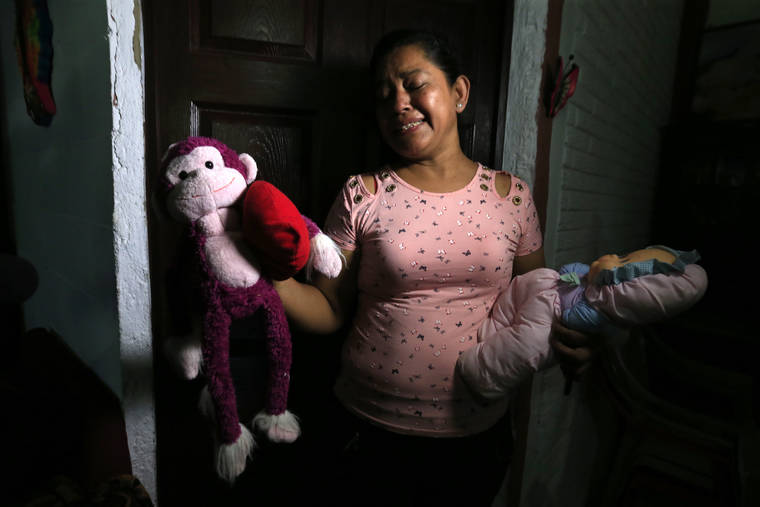SAN MARTIN, El Salvador — The mother of a man who drowned alongside his 23-month-old daughter while trying to cross the Rio Grande into Texas says she finds a heartbreaking photograph of their bodies hard to look at, but also comforting for how they clung to each other in their final moments.
“You can see how he protected her, they died in each other’s arms,” Rosa Ramirez said.
Her 25-year-old son, Óscar Alberto Martínez Ramírez, and his daughter Valeria were swept away by the current near Matamoros, Mexico, and Brownsville, Texas, this week. The grim photo showed the girl tucked inside her father’s shirt for protection with her arm draped over his neck — an image that underscores the dangers migrants face trying to make it to the United States and the desperate measures they resort to in the face of policies designed to deter them.
“It’s tough, it’s kind of shocking, that image,” Ramírez, told The Associated Press, speaking at their Salvadoran home. “But at the same time, it fills me with tenderness. I feel so many things because at no time did he let go of her.”
Ramírez had shared the sea-green brick home with barred windows in San Martin on the outskirts of the capital, San Salvador, with her son, his wife, 21-year-old Tania Vanessa Ávalos and their daughter until the young family decided to make the journey north.
In their working-class neighborhood of about 40,000, Martínez worked in a pizzeria and Ávalos as a cashier in a fast-food restaurant, Ramírez said.
The area has had problems with gang violence but these days it “is calm,” she said, adding that he never had any problems with gangs — they left for economic reasons.
Ramírez said that she had given them the big room in the two-bedroom house, but they dreamed of saving money for a place of their own and that drove the family to head for the United States in early April.
“I told him, ‘Son, don’t go. But if you do go, leave me the girl,’” Ramírez said.
“‘No, mamá,’” she said he replied. “‘How can you think that I would leave her?’ He didn’t have the courage to leave her.’”
Now she feels a hole that “nobody can fill, but God gives me strength,” Ramirez said.
Marta Argueta de Andrade, their 50-year-old neighbor, said she met the family about five years ago. She described them as “good people,” and Martínez as an easygoing young man.
“I would see him walking with the girl. He called her ‘little curly one,’” Argueta said. “It was very sweet.”
Officials have said the bodies were expected to be returned to El Salvador on Thursday. Ramírez said she wasn’t sure when they would arrive, but that the government was paying for it.
“I would say to those who are thinking of migrating, they should think it over because not everyone can live that American dream you hear about,” Ramírez said.
“We can put up a fight here. How much I would like to have my son and my granddaughter here. One way or another, we get by in our country.”


